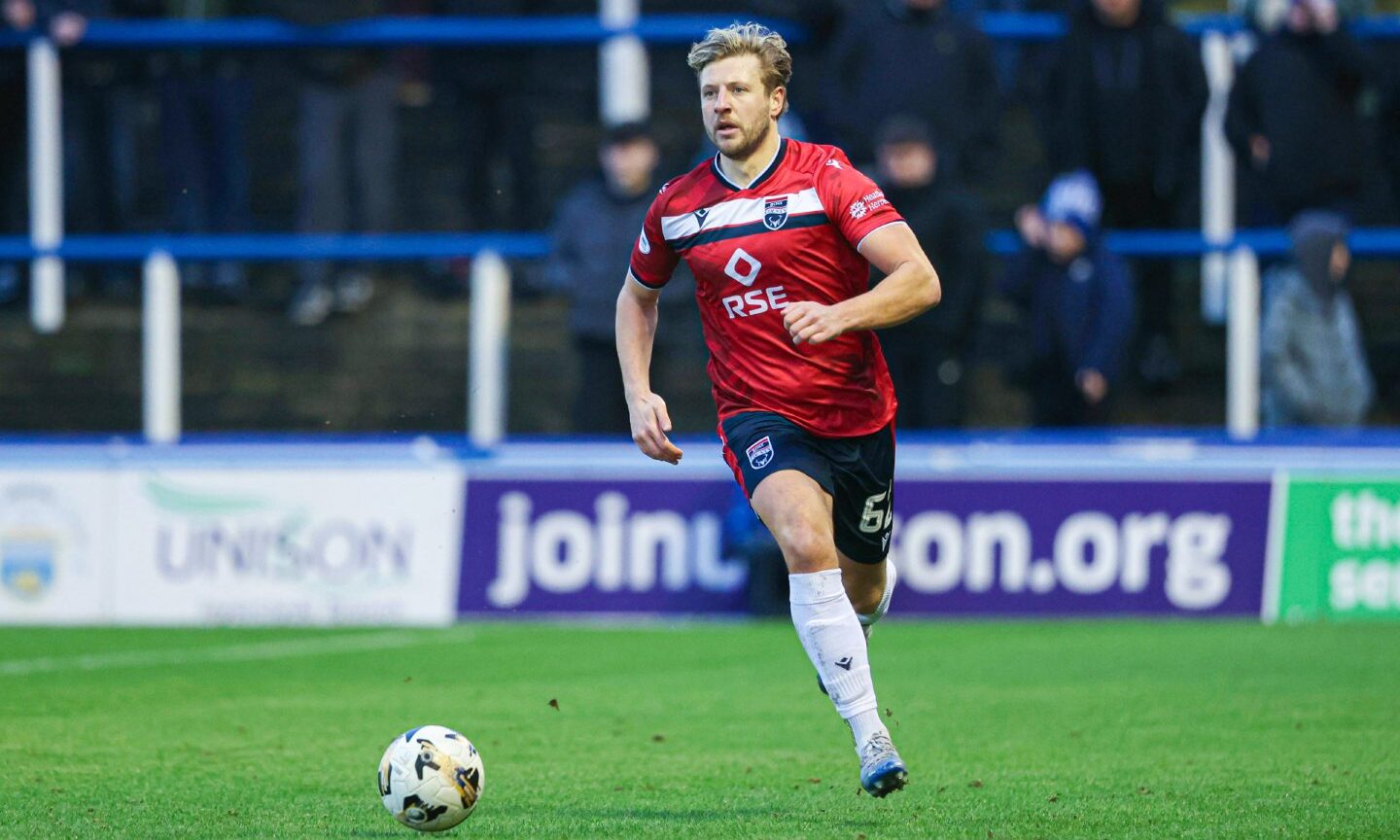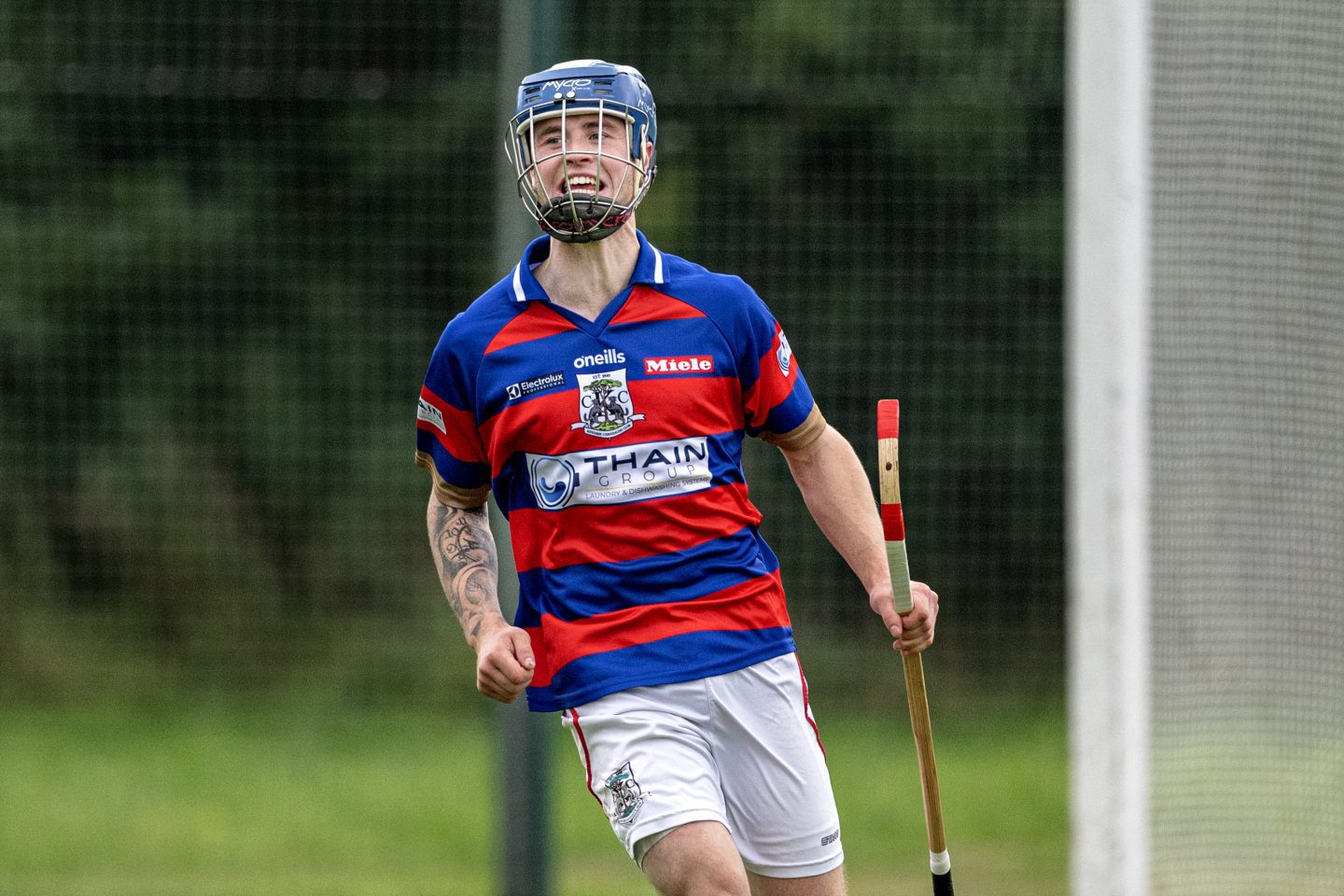Britain’s white working-class young men are flocking to Reform
Nigel Farage is winning over the UK’s left-behind male youth. It could bring him victory

When you imagine a stereotypical Right-wing voter in Britain, you are most likely thinking of someone middle-aged.
There is good reason for that: the average age of Reform and Conservative voters at the last election was, respectively, 56 and 63.
If anything, Britain’s young stand out for just how wholeheartedly they have rejected Right-wing policies. But that could quietly be changing, at least for young men.
“Young people want a future. They want to be able to own their own home. They want to earn good money in life, young men in particular. Nigel Farage is the only one who conveys that message effectively,” says Cain Parkinson, a 26-year-old Reform councillor in Lincolnshire.
Parkinson is one of the many young men who have been swept up by Farage’s turquoise tide – and who say they see politicians they can truly identify with for the first time.
Reform, until recently considered little more than a fringe nuisance, is now polling well ahead of Labour and the Conservatives.
If the party manages to offer more young, white working-class men like Parkinson that sense of belonging, it could shatter Britain’s two-party system and create the biggest political shake-up in generations.
Like many fellow Farage fans, Parkinson did not go to university, is working-class and grew up in a part of the country metaphorically and literally far from Westminster.
Another example is George Finch, who at age 19 has been entrusted with a £2bn budget as the leader of Warwickshire County Council after pausing his studies.
“The reason why I came to Reform was because I felt lost in the Conservative Party, and they didn’t stand up for young people in schools and universities,” he told an audience at the Reform party conference in Birmingham last weekend.
Sixth forms and universities are “a joke” and riddled with “wokeism”, he added.
Young people today are still far more likely to vote Labour, Green or even Lib Dem than Reform.
But political analysts warn that the Left cannot assume it will always be this way. Britain is, if anything, an outlier.
The first-past-the-post system also means political change can occur more gradually than in other Western countries.
In continental Europe, the young – and men in particular – have embraced the Right more enthusiastically than older generations.
“[It’s] very much a something that has become more of a youth movement. We don’t really see that still in the UK in terms of the overall statistics, but the gap is definitely closing here as well,” says Prof Sara Hobolt at the London School of Economics.
While Keir Starmer and Kemi Badenoch are nowhere to be seen on TikTok, Nigel Farage has 1.3m followers.
A fresh-faced 24-year-old called Jack Anderton is credited with this success. He has himself become the focus of headlines after suggesting Britain should have stayed neutral in the Second World War and that Russia is “not our enemy”.
YouGov data suggests one in seven men aged 18 to 24 would vote for Reform, compared to only one in 14 women their age.
Chances are, this fraction will grow among young men, and in particular those from working-class backgrounds.
In fact, it may already be bigger than it seems, says Prof Ben Ansell, of the University of Oxford.
“It’s a hard group to poll. Getting young, working-class men, and also ethnic minority men, is really bloody hard. Those people are worth their weight in gold for a survey company.
“We don’t really know a lot about people who don’t answer surveys. We suspect there are a lot of young men who indeed might be attracted to Reform. So we want to be a bit cautious about polling, because we could be surprised. Farage could get surprised on the upside,” Ansell says.
Farage’s army
Traditionally, men under 30 have long been the least politically engaged group. For parties like Reform, that presents an opportunity. The party has also been happy to entrust this age group with important roles, letting them rise through the ranks much faster than the traditional parties.
Just like Brexit galvanised people to enter a polling station for the first time, Farage could do it again with young men at the next general election.
“Men under the age of 30, they’re terrible. They don’t go to vote at all. So if you got them to vote, it’s not an enormous proportion of the population, but it might well matter across all kinds of marginal districts in the country,” Ansell says.
Having a growing network of young, motivated councillors across some of the most deprived parts of the country where people have long felt overlooked may also play into this.
“One of the big things we found during our campaign for the council was they couldn’t believe that someone’s knocking on the door, putting a letter through the letterbox because they’d never heard of anyone [doing that] before,” says Parkinson.
“Such basic little things, just trying to be engaging with people has made a massive difference.”
While young women in Britain and other countries have become far more progressive in recent decades, men’s social attitudes have diverged.
In other words, Gen Z men and women are more likely than previous generations to disagree on anything from climate change and net zero to feminism, white privilege and trans issues.
Another shift has happened too, with working-class people becoming less distinctively Left-wing in their views but more authoritarian and anti-immigrant than previously, the National Centre for Social Research notes.
Such changes suggest the votes of young men in poorer parts of the country might indeed be ripe for the picking for a party like Reform – if it can convince them to actually vote.
If the crowds at the Reform party conference in Birmingham were anything to go by, Farage and Richard Tice, his deputy, have already made some inroads with this group.
More rally than conference, the attendees were an eclectic mix. There were big lads wearing t-shirts with slogans like “I’ll help you pack” who cheered loudly at any mention of deportations, older women dressed from top to toe in flags and a sea of turquoise polyester.
However, there was also a small army of men in their late teens and 20s in smart suits, many of them newly minted councillors.
The new Reformers have many different answers to what attracted them to the party.
Andrei Morgan-Short, a 28-year-old parish councillor in Medlar-with-Wesham near Blackpool, describes himself as “unapologetically middle-class”.
He likes Reform because he feels it’s a party that doesn’t care whether you went to state or private school, as someone who falls into the latter group.
For Morgan-Short, the let-down of the Conservative Party spurred his interest in Reform. He lists factors such as the “Boriswave” of 1.5m legal migrants, fiscal incontinence following Covid and the party refusing to publicly champion Christian values.
It comes as the share of young people aged 18 to 24 who believe there is a God has more than doubled since 2021 and Donald Trump reinvigorates Christian conservatism on the other side of the Atlantic.
Most importantly, he feels Reform offers consistency, whereas mainstream politicians go wherever the wind blows them.
“Everybody knows what Farage stands for. He has a track record of 30 years of at least relative consistency,” he says.
This is something many of the young Reformers mention. Several said they respected Jeremy Corbyn more than Starmer or Badenoch for this reason.
“If Reform can achieve nothing else, it has the potential to take out the Conservatives and potentially the Labour Party as well. I don’t think any real change is possible in this country until that’s been accomplished,” Morgan-Short says.
“I’m not talking about giving [the Conservative Party] a good kicking. I’m talking more about putting them down like a very sickly dog,” he adds.
This attitude characterises how many young people vote, says Hobolt at the LSE. It is also why Farage has reasons to be optimistic.
“Generally, what you find is young people like to vote for anti-establishment parties. They’re more likely to vote against the incumbent.
“Then the question is, do you vote for challengers on the Left? The Labour Party now is of course in government. At the last general election, Labour did very well among young people. But perhaps they will start doing less well now,” Hobolt says.
If Sir Keir disappoints on issues like housing, jobs and making the young feel like they have better prospects, then chances are they will abandon Labour at the polls.
Young women would be more likely to look to the left of Labour, towards the Green Party or Jeremy Corbyn and Zarah Sultana’s new party.
“But some people, and here it’s more likely to be men, will turn to Reform. If we look at Europe, that probably will be a fairly successful strategy – particularly in terms of younger men who perhaps haven’t gone to university,” Hobolt says.
Among young people aged 18 to 24, men are more likely to say immigration has been too high in the last decade at 51pc to 39pc, YouGov figures from May to September show.
They are also twice as likely to say concerns about climate change have been exaggerated – at 18pc compared with 9pc – and somewhat more likely to say the Government taxes and spends too much, at 32pc vs 27pc.
‘Robbed of purpose’
Political researchers are looking at this growing gap in attitudes with some concern.
“There have been periods of time in British political history where women were more conservative than men, for a lot of the 1950s and Sixties,” says Ansell at the University of Oxford.
But he adds: “To have this massive divergence, and have it among people at the [age] group in which they are hooking up and getting into relationships with one another, marrying, you could see why that could create quite a lot of tension.”
There are many different answers to why young women appear to be drifting to the Left and men to the Right.
Young male voters have their own thoughts about the reasons.
“Growing up, we was always told that white men were the reasons for the all the world’s problems, linking to slavery, etcetera. We were almost made to feel that we were culpable for what happened 300 to 400 years ago,” says Oliver Freeston, a 26-year-old Reform councillor for North East Lincolnshire.
At last year’s general election, he came second in Great Grimsby and Cleethorpes. He took 29pc of the vote, well ahead of the incumbent Conservative MP Lia Nici at 23pc, who lost 33 percentage points of her vote share.
“Finally, we’ve got a party that’s standing up for the interests of white working-class boys, white working-class girls, for everybody. We’re not doing it based on positive discrimination. We’re just saying if you want to be in this country and you want to contribute, then fantastic, we welcome you. It doesn’t matter who you are, what colour you are, but you’ve got to believe in Britain,” Freeston says.
He is degree-educated, but has always lived in Cleethorpes, where he grew up in council housing. He lived with his grandmother for most of his upbringing before moving in with his father, a lorry driver.
“Nigel Farage, Richard Tice, Lee Anderson, they all talk a language that we can understand and relate to,” he says.
Parkinson, who is a councillor nearby in Lincolnshire, adds: “When you are a young guy, and particularly with the way that it’s portrayed in the media – young guys feel a bit almost like disenfranchised sometimes.
“They talk like young guys have all the advantages in the world and that everyone else is disadvantaged. But I can talk from experience, being from a working-class background, it’s not that easy. You have to work really, really hard to be successful in life.”
Parkinson grew up with his father. He did not go to university, but did an apprenticeship and now works in estate planning.
Morgan-Short, the 28-year-old parish councillor in Medlar-with-Wesham, shares similar thoughts even though he grew up with two parents in successful careers, went to private school and studied Politics, Philosophy and Economics.
“I think a lot of young men feel that they’ve been robbed of purpose in modern society. There’s an awful lot of family breakdown. Work has become something it’s become difficult to see the reward of.
“Look at, say, the young men in this country, who are on benefits and don’t work at all and have seemingly opted out of society. I think it’s because it’s been this kind of breakdown of the social contract. Young men are saying ‘well, why should I get married? Why should I work?’”
“Reform turns around and says ‘no, you can be proud of your country’. It gives you a reason to get up in the morning. It gives you a reason to partake in the community,” Morgan-Short says.
Researchers believe such statements in part reflect a backlash against feminism and identity politics. There are important economic and societal trends to consider, too.
“There’s been a huge shift in a very short space of time. When you look at the data for men under 25ish, they’re behind women on everything,” says Ed Davies at the Centre for Social Justice, a think tank founded by Sir Iain Duncan Smith.
“They start the first day of nursery school behind the girls by quite some way. They do worse in every set of exams. They are less likely to go to university, they get worse degrees at university, then they’re more likely to be unemployed and up to the age of 30 now they actually earn less as well.
“What you have is a generation coming through now who have experienced life very differently from people who make decisions about them and for them. It does give this huge feeling of ‘hang on, this isn’t working for me at all’. They want something that is not the status quo, because the status quo doesn’t really work,” Davies says.
Backlash against globalisation
Such shifts mark a quiet but major change in society, which is mirrored in many Western countries.
“A lot of this is a reaction against the consequences of globalisation. There is potentially a market of younger people who are not necessarily particularly socially conservative, who in effect are left behind in terms of labour market prospects,” Sir John Curtice, the polling guru, says.
While men from poorer areas may be falling behind, they still hold sway over politicians.
The faltering economic fortunes of white working-class men is a key reason why Donald Trump took the world to the brink of a global trade war that threatened a worldwide recession earlier this year.
It is even a reason why Vladimir Putin may find it difficult to exit Ukraine, with Russia’s war economy overwhelmingly benefiting otherwise long-struggling working-class men and their families.
Stephen Machin, at the LSE, says working-class men’s declining fortunes are not just about wages.
“They’ve clearly lost out in relative terms. There are several dimensions to it, one of which is the wage side. But the other sides to it are both the nature of jobs and education. We know real wages have stagnated across the distribution, but they’ve clearly stagnated at least as much for young men as a whole.
“There have been big demand shifts against relatively low-skilled men going on for quite a long time. Some of the younger people are doing even worse compared to previous generations. Quite a lot more men are working part-time and are under-employed. So they have seen their economic situation deteriorate compared to other people,” he adds.
In the UK, most ethnic minority groups still earn less on average than white British employees once you adjust for personal and work characteristics, according to the Office for National Statistics.
But the post-pandemic rise in economic inactivity – driven in part by young people getting signed off on sickness benefits for mental health reasons – is overwhelmingly a white British story, where low educational attainment is a key part of the puzzle.
Young people from ethnic minorities are also more likely to grow up in two-parent households, with a real focus on education. Stereotypes of immigrant parents from poorer countries ordering their British-born children to become doctors, lawyers or accountants hold some truth, beyond pop culture portrayals.
“Family structure has really collapsed in white working-class communities. If you look at GCSE results every year, white working-class boys do terribly. But if you look at some of the underpinning life conditions for white working-class boys, you’re very unlikely to live with your father now,” says Davies.
“What you notice is in poor non-white communities, they do much, much better in GCSEs and the like. But they also have something like a five to six in 10 chance of living with their father. That’s triple the chances of living with two parents if you’re in a non-white, poor family,” Davies adds.
You can also add a housing crisis to this already toxic cocktail of poor educational outcomes, stagnating wages and under-employment. ONS figures show there are far more men aged 20 to 34 still stuck in their childhood bedrooms at 2.2m compared to 1.4m for women.
While women still face many challenges too, their position in society has mostly improved rather than worsened. It may explain why they are becoming so much more progressive than men.
The sense of losing economic status in society is a key factor in support for Right-wing politics, research from Europe published by Cambridge University Press has found.
It boosts culturally conservative attitudes and – perhaps counter-intuitively – even makes you more likely to oppose redistribution of wealth.
“When economic resources are portrayed as a zero-sum game, those facing relative loss would be further harmed by governments bringing relief to the have-nots: this would shift the balance in favour of the latter, further exacerbating voters’ fear of ending up in last place,” argues analyst Giuseppe Ciccolini in the research.
“If you are a boy under the age of 25 now, you have grown up and you’ve seen you’re worse at school, worse in the labour market, worse in everything. A lot of politics over the last 20 years has very much had an identity focus: ethnicity, sexuality, gender,” adds Davies.
Hobolt also says: “If you think historically, who is the group in society that has had the highest socio-economic status? That’s been white men. So perhaps you have the furthest to fall then as a white man in terms of feeling there’s a status threat.”
The emerging gap between men and women risks turning the UK into a more polarised place, she says. But we are still a far cry from the US, where Right-wing commentator Charlie Kirk was assassinated last week.
While Americans are becoming more attached to political parties, with many Trump supporters defending him unconditionally, the British electorate is in contrast increasingly volatile. Farage may be able to count on young men at the next election, but he will have to deliver for them.
A lesson to take from this is that Britain needs to be better at lifting up young men, says Davies.
“We don’t really champion boys. We can learn from women who’ve been really good at championing girls. Phrases like ‘girl boss’, ‘women in Stem’ – we don’t really have that with boys. We just have toxic masculinity, which is really not very inspiring at all.”
“Whether it’s Andrew Tate, the coach of the football club, the dad next door or Nigel Farage, I think men are looking towards men for a bit of leadership and ‘fathering,’” Davies adds.
Back in Lincolnshire, 26-year-old Parkinson believes the odds are in Farage’s favour because he is making people like him feel seen for the first time.
“I know people who have never, ever voted before who are going to vote at the next election and are going to vote for Reform.”
[Source: Daily Telegraph]























/file/attachments/orphans/IMG_9103_429753.jpeg)























/file/attachments/orphans/taku-transport_666718.jpg)




